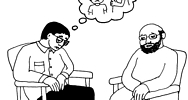Most adults never think about the connection between the consumption of alcohol (at night) and their quality (or lack thereof) of sleep. According to J. Todd Arnedt, PhD, clinical assistant professor at the Sleep and Chronophysiology Laboratory at the University of Michigan, alcohol makes it hard for you to stay asleep and sleep well.
Still, the nightcap has quite a following: Up to 15% of people use alcohol to seduce the sandman, large-scale surveys show, even though research suggests that it loses any benefit as a sleep aid within just a few days, Arnedt says. After a few nights of regular imbibing, your body builds up a tolerance to alcohol's effects.
If you struggle with snoring and obstructive sleep apnea, be extremely careful when mixing sleep with alcohol. Because alcohol is a muscle relaxant, the muscles at the back of your throat relax even more than usual, causing extra-severe snoring, sleep apnea symptoms, and even (though rarely) potential death. Research from the University of Wisconsin-Madison shows that men, especially, have longer episodes of sleep-disordered-breathing after drinking alcohol.
Then, there's the morning after. If you've indulged a bit too much the night before, don't be surprised if you wake up dehydrated and sleep-deprived. And if you've stayed up later than usual, you'll likely feel even worse.
If you do want to savor a little wine with your dinner, here's how to make sure alcohol won't hamper your shut-eye that night:
Follow the four-hour rule. Finish drinking at least four hours before bedtime.
Retire early. Try not to stay up too much past your usual bedtime -- this only increases alcohol's sleep-depriving effects.
Hydrate. Follow the one-for-one rule: Drink one glass of water for every glass of alcohol to help prevent dehydration.
In sum, limiting alcohol consumption before going to sleep will definitely help limit snoring and sleep apnea symptoms. However, doing so is often insufficient to significantly reduce or completely stop snoring and/or sleep apnea symptoms. There are several surgical procedures and ortho-prosthetic devices (such as mouthpieces or CPAP masks) that claim to reduce snoring and sleep apnea symptoms. But, if you are interested in anall-natural systemto significantly reduce, and in most cases,cureyour snoring without uvula or septum surgery, CPAP masks, or mouthpieces, please visit: .



